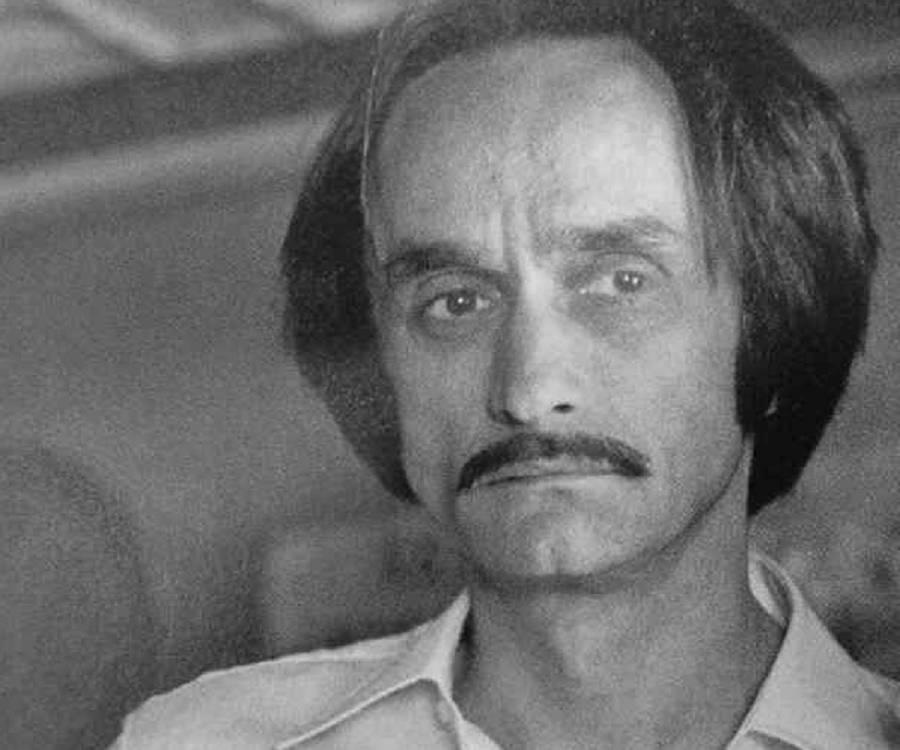John Cazale, a name that resonates with true film aficionados, remains one of the most revered yet underrated actors in American cinema history. Known for his powerful performances and distinctive screen presence, Cazale's career, albeit brief, left an indelible mark on the film industry. Despite only appearing in five feature films, each of which was nominated for the Academy Award for Best Picture, his legacy continues to influence actors and filmmakers alike.
In this article, we will delve into the life and career of John Cazale, exploring his early life, filmography, and the lasting impact he has had on Hollywood. Not only will we highlight his professional achievements, but we will also uncover the personal challenges he faced and how they shaped his artistry. Join us as we pay tribute to a man whose talent was as profound as his tragic story.
Whether you are a long-time admirer of Cazale's work or discovering him for the first time, this comprehensive exploration of his life will provide valuable insights and inspire a deeper appreciation for his contributions to cinema. Let's embark on this journey together!
Table of Contents
Early Life
John Cazale was born on August 12, 1935, in Revere, Massachusetts. He grew up in a working-class family, the son of an Italian-American father and a French Canadian mother. From a young age, Cazale exhibited a passion for the arts, performing in school plays and local theater productions.
After graduating from high school, he attended Boston University, where he majored in drama. Cazale's talent was evident early on, and he quickly became involved in the local theater scene. His move to New York City in the 1960s marked the beginning of a promising career in acting.
Filmography
Cazale's film career, though short-lived, was remarkable for its quality. He appeared in just five films, each of which is considered a classic. Here's a closer look at these iconic roles:
The Conversation
In 1974, Cazale starred in Francis Ford Coppola's suspenseful thriller, “The Conversation.” He played Stan, a close colleague of the protagonist, Harry Caul, portrayed by Gene Hackman. Cazale's performance was both subtle and impactful, adding depth to the film's exploration of privacy and surveillance.
The Godfather
In the same year, Cazale took on the role of Fredo Corleone in “The Godfather.” This film catapulted him to fame, and his portrayal of the conflicted, insecure brother of Michael Corleone (Al Pacino) became iconic. Cazale's nuanced performance resonated with audiences, showcasing his ability to evoke empathy even in a character perceived as weak.
The Godfather Part II
Returning to the role of Fredo in “The Godfather Part II” (1974), Cazale delivered an even more compelling performance. The film's exploration of family betrayal and loyalty reached new heights, and Cazale's emotional depth added layers to Fredo's tragic arc. His famous line, “I’m your older brother, Mike. And I was stepped over!” remains etched in cinematic history.
Dog Day Afternoon
In 1975, Cazale starred alongside Al Pacino in “Dog Day Afternoon.” He portrayed Sal, a bank robber whose plans go awry. Cazale's performance was raw and authentic, capturing the desperation and tension of the situation. The film was a critical and commercial success, further solidifying Cazale's status in Hollywood.
The Deer Hunter
Lastly, Cazale appeared in Michael Cimino's “The Deer Hunter” (1978). Though his role was smaller, his presence was still felt in this powerful anti-war film. The film's exploration of friendship and the horrors of war resonated deeply, and Cazale's contribution was integral to its emotional weight.
Personal Life
Throughout his life, Cazale faced significant personal challenges. He was diagnosed with lung cancer in 1977, during the filming of “The Deer Hunter.” Despite his illness, he continued to work, demonstrating incredible resilience and dedication to his craft.
During this time, Cazale was in a relationship with actress Meryl Streep, whom he met while working on the stage production of “The Seagull.” Their love story was profound, with Streep providing unwavering support during his battle with cancer. Tragically, Cazale passed away on March 12, 1978, just months before “The Deer Hunter” was released.
Legacy
John Cazale's legacy continues to thrive, with his work serving as an inspiration for countless actors and filmmakers. His ability to embody complex characters with authenticity set a standard in the industry that remains relevant today. Cazale's influence is evident in the performances of contemporary actors who strive to achieve the same emotional depth he brought to his roles.
Moreover, Cazale's films, which received critical acclaim and commercial success, have secured him a place in the pantheon of great American cinema. His contributions are celebrated in documentaries, retrospectives, and film festivals, ensuring that his story will not be forgotten.
Conclusion
In summary, John Cazale was a remarkable actor whose career, though tragically cut short, left an indelible mark on the film industry. His performances in classic films such as “The Godfather,” “Dog Day Afternoon,” and “The Deer Hunter” continue to resonate with audiences, showcasing his extraordinary talent and emotional depth.
As we reflect on Cazale's life and legacy, let's remember his dedication to his craft, his resilience in the face of adversity, and the profound impact he had on cinema. We invite you to share your thoughts on John Cazale in the comments below, and if you found this article insightful, feel free to share it with fellow film enthusiasts or explore more content on our site!
Thank you for joining us in celebrating the life of John Cazale. We hope to see you again soon for more engaging articles on the legends of cinema!
You Might Also Like
Alyssa Bustamante: The Dark Journey Of A Young Life And Its ConsequencesCancer And Cancer Compatibility: Understanding The Dynamics Of Cancer Relationships
How Old Is Hailie Jade? An In-Depth Look At Eminem's Daughter
Rush Propst: The Controversial High School Football Coach Who Captured America's Attention
Understanding Sanctioned Suicide: Ethical Dilemmas, Psychological Perspectives, And Societal Implications
Article Recommendations


